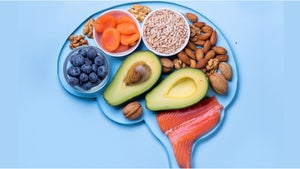Do you ever feel like your stomach is in knots with cramps, bloating and toilet troubles to the point where you don’t want to leave the house? These are IBS flares and if this is something you experience often, you’re probably one of the millions of people around the world who struggle with Irritable Bowel Syndrome (IBS).
IBS is a common condition that affects the stomach and intestines, causing constipation and diarrhoea. These symptoms come and go and can last for short or long periods.
Living with IBS can be extremely frustrating, and unfortunately, it’s a problem that can last a lifetime. It’s believed that food passing through the gut too slowly or quickly can be a cause, but stress and a family history of IBS can also play a part.
The good news is that most people who have IBS can control their symptoms by managing their diet, and stress levels, as well as taking lifestyle factors into account. If you’d like to know more about this condition and how it can affect men and women differently, keep reading to find out as we explore everything you need to know about IBS.
What are the symptoms of IBS?
IBS can cause a range of uncomfortable symptoms which can vary from person to person. Some of the most common one include:
Abdominal pain or stomach cramps
Bloating and swelling
Changes in bowel movements, such as diarrhoea or constipation
Some people may also experience:
Passing excessive gas (flatulence)
Mucus in bowel movements
Feeling nauseous
Fatigue
Lack of energy
Bowel incontinence
Backache
Frequent urination
Weight loss or weight gain
Understanding the different types of IBS
IBS can present itself in different ways for many people and can be categorised based on bowel movement patterns, which include:
IBS with Constipation (IBS-C): Constipation or hard stools are the most common symptoms, alongside bloating and abdominal discomfort.
IBS with Diarrhoea (IBS-D): Diarrhoea or loose stools are the most common symptoms, along with abdominal pain and excessive gas.
IBS with Mixed Bowel Habits (IBS-M): People with this type of IBS will experience both constipation and diarrhoea frequently.
Post-Infectious IBS: This type of IBS develops after a gastrointestinal infection, which can lead to ongoing symptoms.
What causes IBS?
The exact cause of IBS is unknown, but several factors can contribute and understanding these factors can help manage the condition and improve daily life. Let’s take a look at some of the factors:
Gut microbe imbalance
Changes in gut bacteria, fungi, and viruses can cause an imbalance in the microbes living in your intestines, playing a role in the development of IBS.
Abnormal muscle contractions in the intestines
Experiencing abnormal muscle contractions in the intestines that are stronger and last longer than usual can often lead to gas, and diarrhoea, whereas weak contractions can cause hard stools.
Brain-gut connection
The gut and brain are closely linked together, and poor signals between the two can cause problems with the nerves in your digestive system. This can lead to abdominal pain, diarrhoea and constipation.
Severe infection
Experiencing a severe infection, such as a gastrointestinal infection can lead to IBS. This is referred to as post-infectious IBS.
Exposure to stressful events
Emotional and psychological stress, especially in early life, can increase the likelihood of developing IBS.
Genetics
A family history of IBS can also be a factor, increasing the risk of developing the condition yourself.
Trigger foods
Some symptoms of IBS can be triggered by certain foods or drinks, such as dairy products, spicy food, citrus fruits, alcohol and caffeine.
How does IBS affect men and women differently?
IBS can affect both men and women differently in terms of prevalence, symptoms and hormones.
Data from a 2021 study conducted in 33 countries over six continents shows that IBS is up to twice as common among women than men[1]. Women are also more likely to suffer from IBS with constipation (IBS-C) compared to men, who experience IBS with diarrhoea (IBS-D) more frequently. Research indicates that IBS symptoms and treatment responses vary between men and women, but research is still ongoing to fully understand these differences[2].
Women with IBS may notice their symptoms are worse during their menstrual cycle. While they may see an improvement with constipation during this time, they may experience diarrhoea instead. Bloating, abdominal pain and needing to go to the toilet more frequently are other symptoms they could see a change in during the menstrual cycle.
Ways to alleviate IBS symptoms
IBS can be a frustrating condition to live with, but there are steps you can take to manage your symptoms and improve your quality of life for the long term. Here are some practical tips to help you alleviate those symptoms:
Manage your diet
Try to cook homemade meals from scratch and use fresh ingredients.
Keep a food diary of the foods you eat and if they trigger any symptoms.
Avoid eating lots of spicy, fatty or processed foods and consuming lots of alcohol or fizzy drinks.
Avoid hard-to-digest foods like broccoli, beans, onions, etc. as these can cause bloating.
Adjust fibre intake accordingly, for example, lower fibre for diarrhoea and higher fibre for constipation.
Lifestyle changes
Try to exercise regularly as activities like walking, cycling, and swimming can help relieve stress.
Practice relaxation techniques often such as yoga and meditation to help you de-stress.
Ensure you get enough sleep, as poor sleep can result in tiredness and stress.
Medication
Always check with your doctor before taking any medication but peppermint oil is a type of medicine called an antispasmodic, helping to relieve stomach cramps and farting.
If you experience constipation, increasing your fibre intake through fibre supplements may help.
If you’ve tried increasing your fibre intake to no avail, then laxatives could be a better option.
If you experience diarrhoea, anti-diarrheal medications can help you control this and are available over-the-counter from pharmacies.
Living with IBS can be challenging with its uncomfortable symptoms, but with a proper understanding and by implementing effective strategies, you can try to control the impact that this condition has on your daily life.








